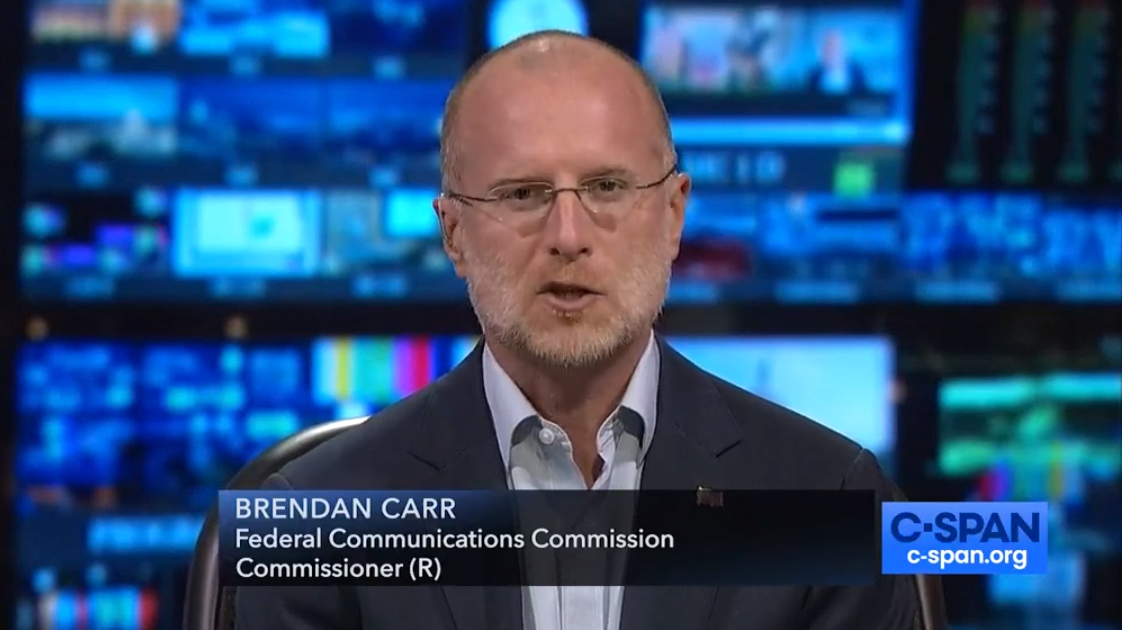Brendan Carr: FCC Continues to Approve Insecure Network Tech
Says it is time to close "glaring loophole'

The smarter way to stay on top of the multichannel video marketplace. Sign up below.
You are now subscribed
Your newsletter sign-up was successful
FCC Commissioner Brenda Carr says it is time to close a "glaring loophole" in rules adopted under former FCC Chairman Ajit Pai to weed out suspect tech from U.S. networks, rules under which he said thousands of insecure applications continue to be approved because they are bought with private funds.
The FCC's rules for requiring telecoms to rip and replace equipment from suspect Chinese tech suppliers--Huawei and ZTE initially and now several more--only apply to equipment purchased with government subsidies, Carr said at an event hosed by the Center for Strategic and International Studies, which means that the same suspect tech bought with private funds can continue to be used in U.S. networks.
Also Read: Rosenworcel Says of 5G Security--Be Afraid; Be Very Afraid
“Once we have determined that Huawei or other gear poses an unacceptable national security risk, it makes no sense to allow that exact same equipment to be purchased and inserted into our communications networks as long as federal dollars are not involved," he said.
He said the FCC continues to approve thousands of applications from Huawei and other entities deemed national security threats.
The FCC's list of companies whose tech must be removed and replaced if it was bought with Universal Service Fund subsidy money has grown to Huawei, ZTE, Hytera Communications Corporation, Hangzhou Hikvision Digital Technology Company, and Dahua Technology Company," Carr points out. He says he reviewed the FCC’s equipment authorizations since 2018 and it shows that "over 3,000 applications from Huawei alone have been approved since then," including "new devices and re-certification of existing ones, ranging from network gear to tracking devices" which include video surveillance and facial recognition equipment."
Also Read: FCC Flags More Chinese Telecoms
The smarter way to stay on top of the multichannel video marketplace. Sign up below.
He calls that a back door for Communist China the FCC needs to slam ASAP.
Carr also wants the FCC to try and make sure that no device can enter the U.S. market if it has been produced with forced labor, saying his proposal is along the lines of the Uyghur Forced Labor Prevention Act introduced by Sen. Marco Rubio (R-Fla.).
Also Read: Huawei Opposes FCC Rip and Replace
Carr says the FCC should require any company that buys devices or components from the Xinjiang Uyghur
Autonomous Region (XUAR) of China would have to meet a "heightened burden" to make sure it was not made with forced labor. "Communist China must not profit from their human rights abuses," said Carr.
"FCC Acting Chairwoman Rosenworcel has long advocated for reforming the equipment authorization process to better ensure security in new network devices and is pleased to see growing support for this idea," said a spokesperson for the acting chairwoman. "In fact, the FCC is already working on addressing many of the issues Commissioner Carr spoke about."
Contributing editor John Eggerton has been an editor and/or writer on media regulation, legislation and policy for over four decades, including covering the FCC, FTC, Congress, the major media trade associations, and the federal courts. In addition to Multichannel News and Broadcasting + Cable, his work has appeared in Radio World, TV Technology, TV Fax, This Week in Consumer Electronics, Variety and the Encyclopedia Britannica.

